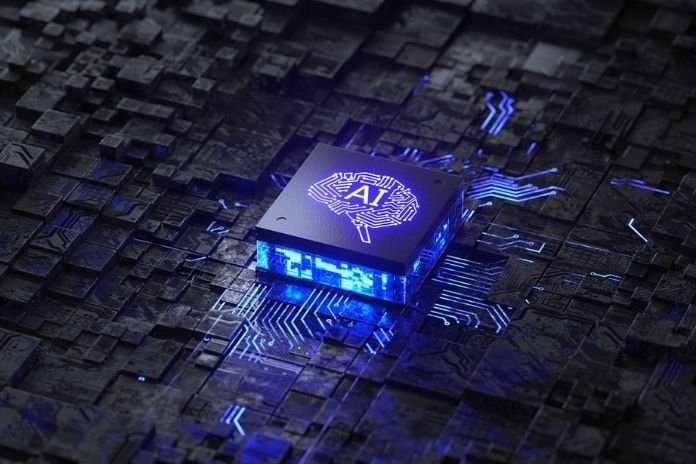The Five Ultimate AI Trends For The Next Decade
AI Trends: The possible developments of Artificial Intelligence, technological, economic, and social opportunities, and realistic assessment. And for the risks. Particular attention should be paid to the following areas.
1. Machines Are Like Children
Computers equipped with self-learning algorithms, i.e., artificial intelligence, basically behave like children. The basis of their learning is what they are “fed” with. As children imitate their parent’s behavior, the machine recognizes and interprets patterns based on their specifications and logically develops the appearances that follow these patterns.
She learns new things, but always against the background of what she originally experiencing. So we will have to ask the question. Do we want to leave the results of this learning to chance? Or should we better develop binding guidelines for learning targets and assessing learning outcomes? And then make sure that compliance with these guidelines can be checked or traced?
We should keep in mind that if the machines learn in an uncontrolled manner in the future, there is a high probability that they will develop primarily in line with the profit maximization of their owner. That cannot be in the public interest.
2. Programmers Become Behavior Scientists
If artificially intelligent machines behave like children, the logical conclusion is: The developers who work with these machines should know and implement the guidelines that are still to be developed. It would help to estimate what the machine will do with its “feed” in the long run. This results in new requirements for IT training: Pure programming know-how alone is no longer sufficient. Rather, a good AI specialist will need some basic ethical training in the future. He must learn to consciously align his work with the common good and with the fundamental ethical values of humanity.
3. The Cultural Revolution Is Coming
No other human-made technology has come close to opening up such a wide range of new possibilities as AI – both positive and negative. What’s more, the Internet is spreading everything at the speed of light. Because of this, AI development will be difficult to control, and advances will be made in many areas that are equivalent to evolutionary leaps. The decisive factor here is that for the AI-based system dawning on the horizon to function in the long term, it must ultimately serve people. Since industrialization, the machine has set the pace and direction.
With AI trends, it is possible to realign this system with humans. However, to do this, we must overcome our thinking in hierarchical structures and separate subsystems that we have practiced for thousands of years. Only then will we master the digitization and artificial intelligence technologies we have created. If not, technology will dominate us. We, therefore, need an open culture base on actually practicing values, a culture of mistakes, which is solely orienting towards the search for the truth or the best possible result for the general public. And we need transparency because that’s the best way to prevent the spread of harmful applications. With transparency, the diesel scandal would not have been possible. But for this, we need new organizational structures that support error culture and transparency development. It has to develop.
4. The Labor Market Is Being Turned Inside Out
If more and more machines uses to add value, this will impact the labor market. One of the first will be that classic job profiles will die out or offer significantly fewer job opportunities – for example, for cashiers in retail or consultants in the financial sector. By 2035, experts expect around four million jobs to loose and around 3.3 million new jobs. However, only if many employees acquire new qualifications. This requires retraining and further education. It remains to see whether this assessment is realistic. It is also quite conceivable that many millions of jobs will lose without replacement. We will also have to develop plans for such scenarios in the coming years. Will an unconditional basic income then be necessary to secure the livelihood of the citizens – and their consumption as the mainstay of our economy?
5. Economy For The Common Good Or Growing Inequality
One thing is certain: artificial intelligence will always create new ways of maximizing profits. And machines will have an ever-larger share in the general added value. This added value must make an appropriate contribution to the community. Otherwise, the mechanisms by which our market economy has worked so far will ensure that the money they generate primarily benefits those who own or operate these machines. Let’s leave development uncontrolled to these mechanisms in a few decades.
There will possibly be tens of thousands of super-rich people on earth and an army of billions of poor whose consumption will sustain by subsidies. No one can say what psychosocial consequences this will have. The alternative: We create an economy for the common good, a system in which value creation benefits the general public more than it does now.
Because one thing is clear: our economic system lives from consumption. Therefore, cooperation is in everyone’s interest, whether they have a lot or a little. It would be ideal if the rich or the owners of the AI trends super machines recognized that they need other people to keep the system going. And act accordingly, according to the motto: Live and let live.
Conclusion
If we succeed in finding good answers to the questions outlined above, if we can do justice to the ethical dimension of AI trends and steer its development accordingly, then – artificial intelligence can become a developed blessing for humanity. It will be crucial: We have to think now, start the public discourse and act quickly. Otherwise, Pandora’s box may be open before knowing what’s inside.
Also Read: AI In Medium-Sized Companies
Share this content:











Post Comment